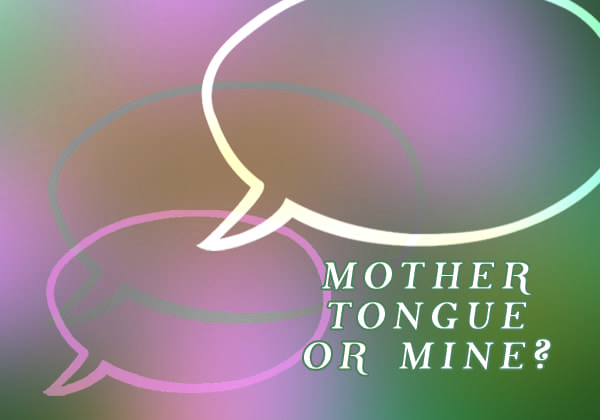A few weeks ago, I stood in line at my local newsagency behind an elderly lady as she was being served by the storekeeper. The storekeeper addressed her directly with a clear, but not patronising, air to his voice. Her words were pronounced slowly, but they eventually came together and arrived where they needed to be. At that moment, I was unsure why their ordinary exchange about the price of a lottery ticket had managed to catch my attention.
In hindsight, I realised that the reason was simple. I recognised and understood the language they were speaking in: my mother tongue. To others in the vicinity, it was just some foreign speech. For me, though, I had permission to listen in on their public, but also entirely private, conversation.
After the elderly lady left, I reached the front of the counter and declared to the storekeeper that I had a package to collect in Vietnamese. A polite degree of disbelief arose in his eyes. He responded in English, with an accent that resembled an Aussie’s but was not exactly there.
“You know how to speak Vietnamese?”
This familiar churning in my stomach gave rise to a nervous laugh. I was not sure whether to say “yes” or “dạ.” Neither was wrong, but neither was right either. Both options were wrapped further in an entanglement of questions. Did he not expect it of me? Did I mispronounce something? Did I not look like someone who could speak Vietnamese? It was as if I was being tugged by two halves of myself, two different voices that commanded me to yield to only one of them. Even though I wanted to say something, the feeling of wanting to run away grew stronger.
I settled for a nod.
—
My relationship with my mother tongue has been a complex struggle. I never presented my surname in its actual form with the dip and rise in tone, the nasal beauty. “Nguyễn” was reduced to “win”, “new-in” and “new-yen” or whatever worked best for the person I was introducing myself to. Whenever I would eat at a phở restaurant, I rehearsed the orders, letting them glide from my mind to mouth, ready to impress my friends, only to be met with a “Hi, how can I help you?” I should have been thankful that their service was adjusted for my convenience but instead, I was upset, frustrated, lost. Even my parents continue to be surprised when they hear me belting out Vietnamese songs in the car. Their shock admittedly was warranted at first, considering I spent most of my youth opting out with a pair of headphones to listen to anything and everything else. Yet each instance repelled me further away from singing what I deemed ‘their’ music at family karaoke nights.
For a long time, I avoided any situation where I would need to utter a single syllable of Vietnamese. It was not out of protest, nor out of ignorance that I muted myself. It was because I was uncertain. I never felt qualified enough to call it my mother tongue. Although my fluency was cultivated from my childhood, my Vietnamese vocabulary existed solely to communicate with my family. Beyond the walls of my home, my mother tongue only manifested itself in whispers, ranging from covert complaints and curses about the rowdiness of others in the same train carriage, to detailed translations for my parents about the prices, policies and promises that retail sales assistants would offer in stores. I restricted my use of my mother tongue and did not think it could be anything more.
But now, I refuse to set Vietnamese aside, to simply label it my “second language.” After all, I had learnt it before English. I had attended a school to strengthen my proficiency in it and when I travelled overseas to visit my relatives, I spoke it exclusively. Placing it within a hierarchy of languages meant it would have to reside on a runner-up podium, perhaps gracious on the surface but harbouring a secret resentment for the victor. It is seeking equality. It is calling to me and more than ever, I feel compelled to respond. It is slowly, but surely, becoming something more.
My desire is to embrace Vietnamese as a partner language, all its idiosyncrasies, mysteries and wonders. Rather than resorting to English when confronted with the limits of my mother tongue, I resolve to consult my family, relatives and community for the right words, expressions and phrases to elevate the dialogue I am having with others in it. Most of all, when I summon the words of my mother tongue, I no longer want to feel sadness. I wish to assert, find pride in and transcend barriers with it. I want to exercise Vietnamese, claim it as my own, over and over again until it becomes mine.
—
I could not remember the details of what happened that day at the newsagency except the hasty passing of coins from my hand into his, and the pockets of silence that demanded to be filled but remained empty. What stayed in my memory after the incident was his reply to my shaky “cám ơn”, my “thank you.”
“I wish my daughter could also speak as well as you.”





